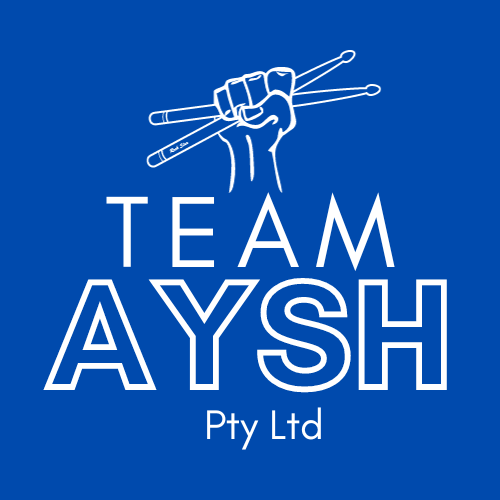As parents, we all want the best for our children. We dream of seeing them thrive, succeed, and lead fulfilling lives. For parents of children with disability, this desire is no different. However, the journey can often come with unique challenges and uncertainties.
When I was pregnant with Aysh, we had dreams of our boys playing together; growing up as best friends and lifelong companions. Before our eldest son even started preschool, we knew that was not the direction things were going to go. It had become clear that we were on a different path.
The key to navigating these differences lies in empowerment—helping our children feel capable, confident, and ready to take on the world. Here’s how you can empower your child, celebrate their strengths, and build a bright future together.
Embrace their uniqueness
Every child is unique, and this uniqueness is something to be celebrated. All children, including children with disability, have their own set of strengths, talents, and abilities.
I remember when Aysh was only five years old and a teacher told me he had great musical rhythm. I laughed since both my husband and I are completely musically-illiterate! But it has become such a huge part of who Aysh is as a person that it is hard not to imagine it in our lives now.
As parents, it’s important to recognize and embrace their differences. Encourage your child to explore their interests and passions, whether it’s art, music, sports, or academics. By doing so, you help them develop a sense of identity and pride in who they are.
Celebrate small victories
In the journey of empowerment, every achievement, no matter how small, is worth celebrating. Small victories build confidence and motivate children to keep striving for more.
Recently Aysh planted a garden as part of a community program he is involved in. They sent me photos of him throughout the process. And, although it is not the first time he has been involved in gardening – or expressed an interest in it – the pride on his face is so clear.
I am sure that not only was he proud of the fact that he completed the task, but also that he pushed through his tendency to get someone else to take over and his preference to not engage in a group activity. It is always so great to see the look on his face when he does something that he didn’t even believe he could do.
Whether it’s learning a new skill, making a new friend, or achieving a personal goal, take the time to acknowledge and celebrate these moments. Your encouragement and positive reinforcement can make a world of difference in your child’s self-esteem.
Foster independence
One of the most empowering things you can do for your child is to foster their independence. Similar to the victory of completing a task, Aysh enjoys leaning into his independence and testing what he can do by himself. We encourage him to try new things, and to do things for himself wherever possible. Sometimes this is making himself a sandwich, or hanging out washing, other times it might be supporting him to make a decision about what to make when it is his turn to cook for the family.
Encourage your child to take on age-appropriate responsibilities and tasks. This might include dressing themselves, helping with household chores, or managing their own schoolwork.
Providing opportunities for independence helps children develop essential life skills and a sense of autonomy. Remember, it’s okay to step back and let them try—even if they make mistakes. Each attempt is a learning experience.
Advocate for inclusion
Inclusion plays a crucial role in empowerment. Advocate for your child’s right to be included in all aspects of life, from school activities to community events.
It took me a long time to really understand inclusion. So often we hear the word ‘inclusion’ or ‘inclusive’ in reference to a group or program that is for people with disability. “Come to our inclusive event” usually means it is an event to bring together people (or children) with disability.
But really, inclusion is the opposite of that. True inclusion means that we don’t even have to call it out. It means that it is an event or activity that anyone can come to – no matter who you are. It means that things like sensory considerations, ramps or flat surfaces, or the use of Auslan – are simply part of the event planning.
Inclusion fosters social connections, builds self-confidence, and helps children feel valued and respected. Work with educators, community leaders, and other parents to create an inclusive environment where every child can participate and thrive.
Wouldn’t it be great if our children with disability could live, work and play, in any part of the community? If we could aim for a truly inclusive society, the word inclusion would no longer even be necessary – it would just simply be.
Provide a supportive environment
A supportive environment at home is the foundation of empowerment. Create a space where your child feels safe, loved, and understood. Encourage open communication, listen to their thoughts and feelings, and provide reassurance when needed.
The best outcome from building Team Aysh as a specific service just for Aysh, is that we can truly focus on understanding and listening to him. As a service for one, we don’t need to worry about conflicting access needs of other people, or to be concerned about matching the right staff with the right individuals. Instead each staff member is chosen because they are a good match to Aysh. And we can design activities, services and supports so that they fit what makes him feel safe, understood and empowered in his independence.
Our team actively shows Aysh that they support and believe in his capabilities. This gives him the confidence to face challenges each day and to pursue his dreams into the future.
Encourage self-advocacy
Teaching your child to advocate for themselves is a powerful tool for empowerment. It also supports their safety and wellbeing and helps you determine if a service or support is listening and providing a quality service.
For Aysh, this can be tricky when his verbalisations are limited. When he does speak up and say ‘no’ or asks to leave, it is important that we honour that. For him to learn that his voice matters, we need to pay attention to the little things – the behaviours, words or actions that indicate he is stressed, anxious or unhappy.
We try to help him understand his rights, needs, and strengths. But this can be a difficult concept for someone with an intellectual disability. Instead we focus on paying attention to his “voice” (verbal or non-verbal) and responding appropriately.
Encourage your child to voice their opinions and make decisions about their own life – however they can do that. Self-advocacy skills will not only boost their confidence but also prepare them for future independence and success.
Connect with other parents
You are not alone on this journey. Connecting with other parents of children with disabilities can provide valuable support, advice, and encouragement.
We have connected with other parents through school and community activities, online via social media, or in parent training and workshops. One of the difficulties meeting other parents can be the continual comparison. You may think you have it easier than them, so you ‘shouldn’t complain’ or you might feel like they do not understand because their experience is different. The truth is that each family’s journey is unique – with unique challenges and experiences. You can never really know what goes on behind closed doors so be open to learning from them.
Join support groups, attend community events, and share your experiences. Building a network of support can help you navigate challenges and celebrate successes together. And when you are designing a life, connections with others across the community, can be an invaluable source of information and support.
Conclusion
Empowering your child with a disability is a journey filled with love, patience, and dedication. By celebrating their strengths, fostering independence, advocating for inclusion, and providing a supportive environment, you can help your child build a bright and fulfilling future. Remember, every step you take towards empowerment brings your child closer to realizing their full potential. Together, let’s create a world where every child feels capable, confident, and ready to shine.

